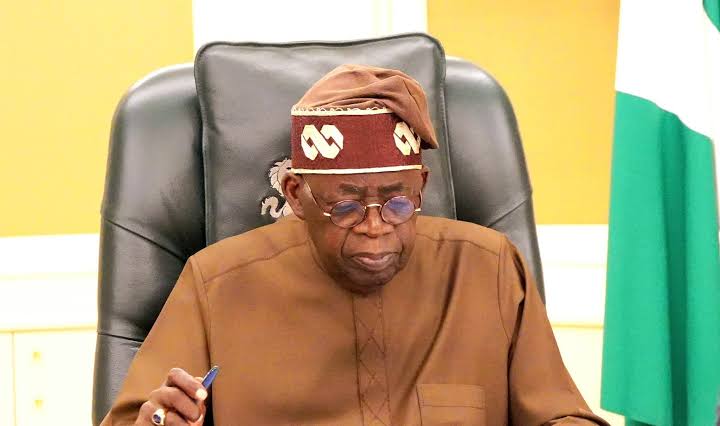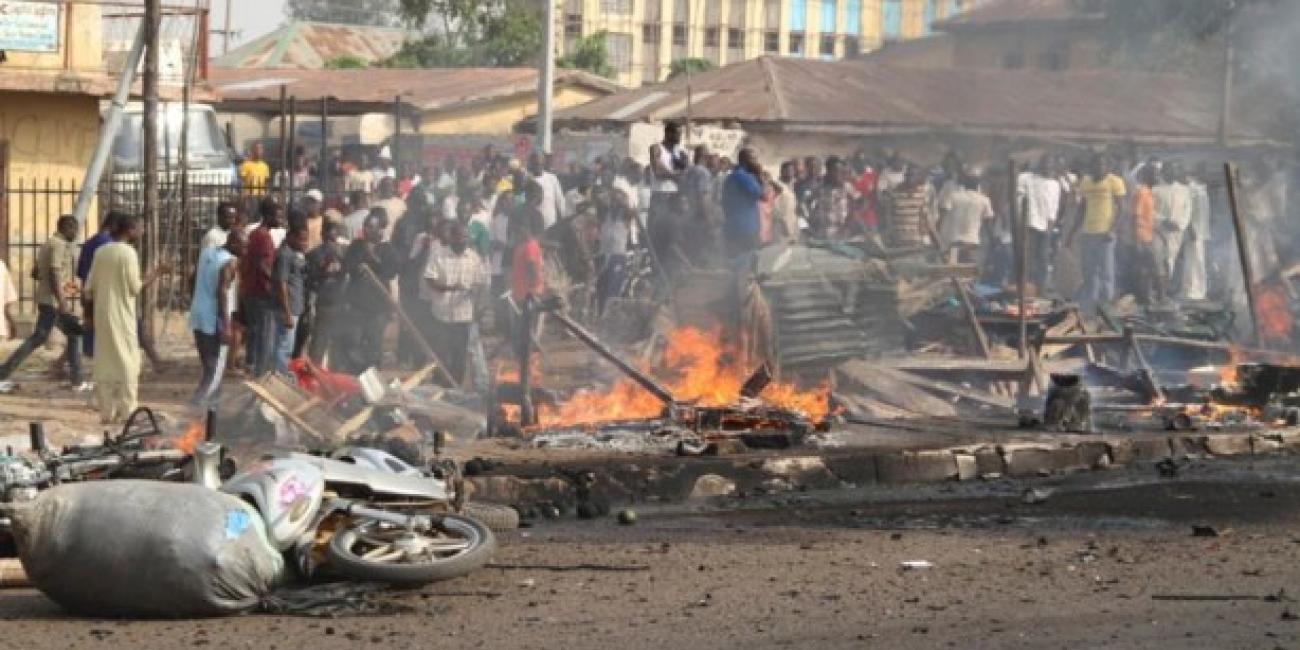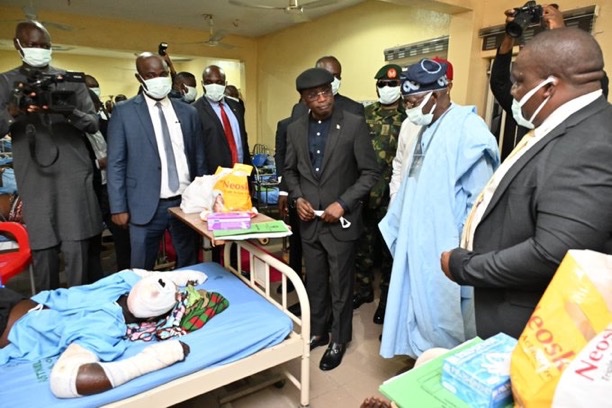On June 12, 2025, President Bola Ahmed Tinubu will address a joint session of Nigeria’s National Assembly to mark the nation’s Democracy Day, a significant annual event commemorating the restoration of democratic governance in 1999. The session, scheduled to take place at the House of Representatives Chamber in the National Assembly Complex, Abuja, will commence at 11:00 AM, with the President’s keynote address set for 12:00 noon. This event underscores Nigeria’s commitment to democratic ideals and provides a platform for reflection on the country’s progress over the past 26 years.
The 2025 Democracy Day celebration carries the theme “26 Years of Democracy: Renewing our Commitment to National Development,” highlighting the need for sustained efforts toward nation-building and inclusive growth. President Tinubu, as the Special Guest of Honour, will deliver a comprehensive address expected to outline his administration’s achievements, policy priorities, and vision for Nigeria’s future. The speech will also address pressing national issues, including economic reforms, security challenges, and efforts to strengthen democratic institutions.
In addition to the keynote address, President Tinubu will confer National Honours on select legislators recognized for their exemplary contributions to Nigeria’s democratic development. These awards aim to celebrate individuals who have demonstrated outstanding leadership and dedication to public service. The ceremony will serve as a moment of national pride, showcasing the pivotal role of the legislature in advancing Nigeria’s democratic journey.
The joint session will feature goodwill messages from former presiding officers of the National Assembly, offering perspectives on the evolution of Nigeria’s democracy. These messages are expected to provide historical context and inspire renewed commitment to democratic values among current lawmakers and the public. The inclusion of past leaders emphasizes the continuity and resilience of Nigeria’s democratic institutions.
The event is being meticulously organized by the National Assembly, with the Senate President and Speaker of the House of Representatives overseeing preparations to ensure a seamless program. Security arrangements have been heightened around the National Assembly Complex to guarantee the safety of attendees, including lawmakers, government officials, and invited guests. The session will be broadcast live on major television and radio stations, allowing Nigerians across the country to follow the proceedings.
Democracy Day, observed annually on June 12, honors the annulled 1993 presidential election, widely regarded as Nigeria’s freest and fairest, and the sacrifices of pro-democracy activists who fought for the return of civilian rule. The date was officially adopted as Democracy Day in 2018 by former President Muhammadu Buhari, replacing May 29, which now serves as Inauguration Day. This year’s celebration is particularly significant as it marks over two decades of uninterrupted democratic governance, a milestone in Nigeria’s political history.
President Tinubu’s address is anticipated to reflect on the progress made since 1999, including advancements in infrastructure, electoral reforms, and social programs, while acknowledging ongoing challenges such as unemployment, inflation, and insecurity. His administration has prioritized economic stabilization through policies like the removal of fuel subsidies and the unification of foreign exchange rates, though these measures have sparked public debate. The speech may provide insights into how the government plans to mitigate the socioeconomic impacts of these reforms.
The National Assembly, as a co-equal arm of government, plays a critical role in Nigeria’s democracy, serving as a platform for legislation, oversight and representation. The joint session offers lawmakers an opportunity to engage with the executive on national priorities and reinforce their commitment to serving the Nigerian people. The event also fosters collaboration between the legislative and executive branches, essential for effective governance.
Public expectations for the address are high, with many Nigerians eager to hear the President’s plans for addressing pressing issues like youth empowerment, education, and healthcare. Civil society organizations and political analysts have called for a speech that not only celebrates democratic achievements but also outlines concrete strategies for tackling systemic challenges. The address is expected to strike a balance between optimism and pragmatism, inspiring confidence in the government’s ability to deliver on its promises.
The conferment of National Honours during the session will highlight the contributions of legislators who have championed key reforms, such as constitutional amendments and electoral improvements. Past recipients of such honors have included lawmakers instrumental in passing landmark legislation, such as the Electoral Act 2022, which enhanced the transparency of Nigeria’s electoral process. This year’s honorees are expected to reflect a diverse range of contributions to national development.
Logistical preparations for the event include protocol arrangements for dignitaries, media accreditation, and coordination with government agencies. The National Assembly has invited representatives from the judiciary, state governments, and diplomatic corps, underscoring the event’s national and international significance. Special provisions have been made to accommodate guests with disabilities, ensuring inclusivity in line with democratic principles.
The live broadcast of the session will be complemented by social media coverage, with the National Assembly and Presidency expected to share updates on platforms. Nigerians are encouraged to tune in and engage in discussions about the state of the nation’s democracy, fostering a sense of civic participation. The event’s accessibility reflects the government’s commitment to transparency and public involvement in governance.
As Nigeria celebrates 26 years of democracy, the joint session serves as a reminder of the sacrifices made by citizens and leaders to uphold democratic values. From the struggles of the 1990s to the present day, Nigeria’s democratic journey has been marked by resilience and progress, despite periodic challenges. President Tinubu’s address will likely emphasize unity and collective responsibility in building a stronger, more prosperous nation.
The Democracy Day celebration will conclude with a reception hosted by the National Assembly, providing an opportunity for informal interactions among attendees. This gathering will reinforce the spirit of collaboration and camaraderie essential for effective governance. The event’s success will depend on the seamless execution of its various components, from the President’s address to the conferment of honors and the delivery of goodwill messages.
In the broader context, the 2025 Democracy Day comes at a time when Nigeria faces both opportunities and challenges in its quest for sustainable development. The joint session offers a platform for national reflection and renewed commitment to democratic ideals, with President Tinubu’s leadership at the forefront. As Nigerians await his address, the event promises to be a pivotal moment in the nation’s ongoing democratic journey.




